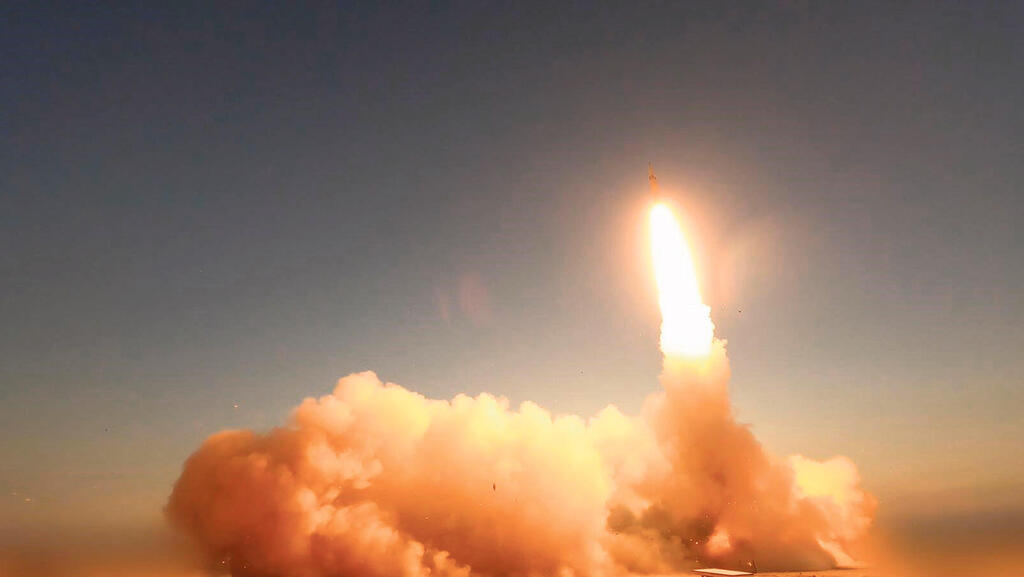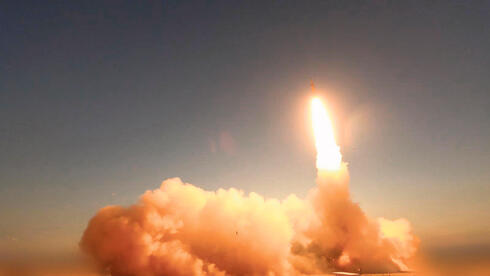
‘Box of surprises’ 2.0: Israel’s secret weapons race restarts
Billions needed to refill arsenals and outpace Iran’s countermeasures.
The ceasefire at the end of 12 days of war has launched Israel and Iran into an accelerated arms race, as both countries prepare for the next round of conflict. According to Israel’s defense establishment, this renewed race will cost tens of billions of shekels, primarily for developing new capabilities to maintain Israel’s technological and qualitative edge over Iran.
Alongside the need to develop a new arsenal of “surprises” for the next confrontation, Israel urgently needs an injection of billions of shekels to fully replenish its stocks of interceptors, missiles, and bombs, while also developing advanced generations of weapons to address future threats.
Although budget disputes between the Ministry of Defense and the Ministry of Finance have recently delayed orders for crucial Air Force weapons systems, Israel’s defense industries are sitting on a massive backlog of orders from both domestic and international buyers.
Following the war with Iran, Israel’s defense companies secured another wave of orders worth billions of shekels from the Defense Ministry. Meanwhile, NATO’s decision at its recent summit to double member states’ defense spending to 5% of GDP by 2035 - driven by fears of a Russian invasion - opens vast new opportunities for Israeli companies in an arms market that shows no signs of slowing down. Potential normalization with Saudi Arabia, which U.S. President Trump is actively pursuing, could unlock even more deals for Israeli defense firms.
Inside Israel’s security establishment, there is broad consensus that Iran has not disappeared as a threat and that a new round of direct or covert confrontation is only a matter of time - and money. Trump’s announcement last week of a ceasefire between Israel and Iran also signaled the start of an arms race that could drain both nations of tens of billions of dollars they can ill afford, all in preparation for the next war.
Israel’s decisive victory in this latest round is widely credited to two decades of massive investments in military power and deep intelligence penetration into the Iranian regime. Stand-off missiles developed by Israel’s defense industries allowed its aircraft to precisely strike key parts of Iran’s air defense system from afar. Missiles like the Rampage and the ROCKS were launched at their targets long before Israeli jets even entered Iranian airspace. Simultaneously, Mossad units operated drones deep inside Tehran, targeting top Revolutionary Guard commanders and senior figures in Iran’s nuclear program.
Such capabilities required years of development and huge budgets. If not for decisions made more than a decade ago, Israel could have found itself confronting Iran with far fewer options. But many of these capabilities have now been “burned” by being used in combat and will need to be replaced or upgraded. Iran, and other interested countries, will spend the coming months analyzing what happened in the skies over the Islamic Republic, studying every missile fragment to figure out exactly how they were attacked.
Related articles:
This erosion of secrecy will force Israel’s defense industries and military to refill their “box of surprises.” Some systems can be used openly on other fronts. Others may soon be partially declassified so that defense firms can market them globally. Many of these weapons now carry the valuable “combat-proven” seal, and Israeli defense companies report high interest from buyers worldwide. “Everyone is watching what we and the Americans did in Iran. This will influence what happens, if it happens, in other arenas, including the South China Sea, which remains a top priority for the U.S.,” a senior defense industry analyst told Calcalist.
Yet amid the euphoria of Prime Minister Benjamin Netanyahu and Defense Minister Israel Katz over the victory in Iran, difficult decisions loom. Replenishing Israel’s next-generation arsenal could cost tens of billions of shekels. One security source admitted it’s impossible to give an exact figure: “Every new need that emerges is another billion, sometimes billions. This is a massive effort to build force rapidly, there’s no time, and this is certainly not the moment for hubris.”
Beyond developing new special capabilities for the IDF and Air Force, which will require years of development and testing, the 12-Day War has left Israel’s forces scrambling to restore their basic operational readiness. The fighting depleted huge quantities of air-to-ground bombs, missiles, drone munitions, and costly air defense interceptors like Arrow-3 and David’s Sling. To plug these gaps, the IDF will need to replenish stockpiles to levels far above pre-war norms.
At the same time, the Air Force faces an unprecedented maintenance challenge: hundreds of fighter jets, refueling and mission aircraft, combat helicopters, and drones now require extensive overhaul after intensive wartime operations.
Meanwhile, the ongoing war in Gaza - now in its 632nd day - continues to stretch Israel’s defense systems to the limit. The IDF must also strengthen its armored brigades with new APCs and Merkava tanks.
“Israel must end the war in Gaza. The excuses for delay don’t hold water. The urgent priority is to return the hostages, rebuild, rejoin the family of nations, and draw the necessary political and military lessons for the ongoing conflict with Iran, because that war is far from over,” says Maj. Gen. (res.) Amos Gilead, the Executive Director of the Institute for Policy and Strategy (IPS) at Reichman University.
As early as October 7, Israel’s defense industries switched to emergency mode, running production lines around the clock to support the IDF’s combat operations. Threats of arms embargoes, raw material supply disruptions, and export restrictions imposed by the previous U.S. administration added to the challenge. Despite this, the defense industries became a critical arm of Israel’s war effort. This was highlighted by three site visits last week by Maj. Gen. (res.) Amir Baram, Director General of the Ministry of Defense, to Israel Aerospace Industries, Rafael, and Elbit Systems. “The race to offset Israel’s technological advantage and prepare for the next conflict has begun,” he said during a visit to Rafael’s Iron Dome missile line. “We must act urgently, accelerate production dramatically, and develop the next generation of combat systems.”
Baram, who has just completed his first three months in office after replacing Eyal Zamir (now Chief of Staff), is doubling down on Zamir’s policy of prioritizing Israeli products to reduce reliance on foreign suppliers. This policy, born of necessity, together with fresh waves of orders from the Defense Ministry, is prolonging a “golden age” for Israel’s arms manufacturers. By the end of Q1, Israel’s three main defense companies were sitting on a record backlog of orders nearing 235 billion shekels, with more deals on the horizon.
In parallel, the NATO summit last Wednesday in The Hague saw most member states align with President Trump’s demand to double defense spending from roughly 2.5% to 5% of GDP by 2035, a dramatic decision that will increase NATO’s collective defense budget by over $400 billion annually for the next decade. This money will fund programs to strengthen European armies against a potential Russian invasion. The war in Ukraine, ongoing since February 2022, has already sparked an arms race across Europe. European countries, which have sent huge quantities of weapons to Ukraine from their own emergency stocks, are now restocking with modern systems to counter emerging threats.
Israel’s defense firms feel Europe’s arms fever directly, and profitably. Earlier this month, the Ministry of Defense reported that Israeli defense exports hit a record $14.8 billion in 2024, up 20% from 2023. This surge comes even as Israel’s factories produce weapons for the IDF, call up workers for extended reserve duty, and face frequent rocket attacks designed to disrupt operations.
Despite these pressures, Israeli defense companies are determined to seize the huge opportunity in Europe’s expanded defense budgets. Operational success in Lebanon and Iran, and the real-world battlefield testing against Hamas, have only burnished the global reputation of Israel’s weapons, even among European countries that often harshly criticize Israel’s Gaza operations and accuse it of war crimes.
